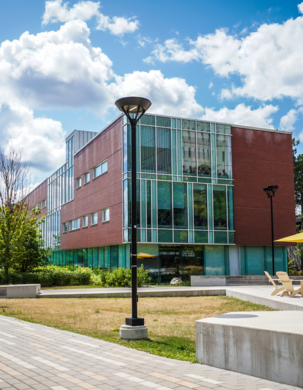It takes more than technical skills to succeed in the workplace.
To prepare for the future of work, students must acquire and enhance a range of essential professional skills, such as communication, collaboration and problem-solving. Employers report that these skills are just as important as technical skills when hiring, training and evaluating their employees.
Our work-integrated learning (WIL) courses are designed to support you in enhancing your professional skills and employability through WIL. We’ve designed the undergraduate and graduate courses in alignment with Waterloo’s Future Ready Talent Framework to help you identify and develop the skills you’ll need as you navigate the future of work. Combined with your academic program and WIL experiences, WIL courses ensure you’re ready to excel in the workplace, regardless of your career path!
For undergrads, you’ll take most of your Professional Development (PD) courses during your work terms or EDGE experiences. For graduate students, WIL 601 is taken before your recruitment term, making it easier for you to draw connections between course content and your WIL experience. Through robust content, critical reflection and feedback from subject matter experts, our WIL courses will support you in becoming a future-ready graduate.
Accountability and evaluation
The Co-operative and Experiential Education Council (CEEC) oversees our operation at the Centre for WIL. The Council has a wide mandate regarding co-operative and experiential education at the University. It is chaired by Norah McRae, associate provost, Co-operative and Experiential Education.
How we improve our courses
Continuous improvement is one of our foundational principles at the Centre for WIL. We evaluate our curriculum, course delivery and the support we offer to students on a regular basis. Our goal is to ensure you have access to relevant, engaging material and help when you need it.
Our approach to course evaluation and improvement includes:
- term-by-term refinements (small updates to courses every four months), and
- routine, comprehensive redevelopment projects.
Both these refinements and redevelopments are informed by:
- your input and feedback,
- internal reviews,
- consultations with instructors, and
- consultations with industry professionals.

History of WIL courses
In 2002, the University began granting academic credit to students for their work terms. The University needed a complementary co-op curriculum, one that could help students develop professional skills to better address employer needs.
Waterloo’s faculties began working on their own professional development programs. They soon realized that they shared common goals across faculties. The faculties worked together to create a single, centralized program.
Enrolment across all six faculties continues to increase. While redeveloping and refining the existing suite of courses, the WIL courses team has also launched several new courses.
